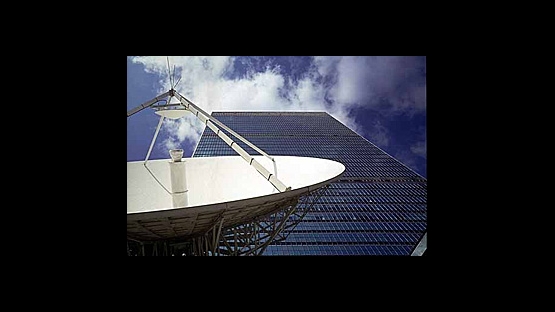The 2005 Review Conference of the Parties to the Treaty on the Non-Proliferation of Nuclear Weapons (NPT) will meet 2-27 May 2005 at the United Nations in New York, to hammer out priorities to confront the spread of nuclear weapons.
The Treaty, which marks its 35th anniversary this year, is seen to be at a turning point. IAEA Director General Dr. Mohamed ElBaradei says the system "clearly needs reinforcement."
"It is clear that recent events have placed the NPT and the regime supporting it under unprecedented stress, exposing some of its inherent limitations and pointing to areas that need to be adjusted," he said.
Dr. ElBaradei has proposed seven steps to strengthen the NPT regime and with it, world security. "Some of the needed fixes can be made in May, but only if governments are ready to act," he said. The May 2005 Review Conference provides a forum for the 188 countries party to the Treaty, to examine its operation and direction for the next five years.
Under the NPT, the IAEA has the authority to inspect nuclear facilities in countries that are Treaty members who have signed safeguards and additional protocol agreements with the Agency. In 2003, for example, IAEA inspectors spent 9 260 days "in the field" devoted to verifying hundreds of tonnes of special fissionable material in some 644 locations. The Treaty also entrusts the IAEA as a multilateral channel for transferring peaceful applications of nuclear technology.
The seven fixes proposed by Dr. ElBaradei would not require amending the Treaty. They are:
- A five-year moratorium on building new facilities for uranium enrichment and plutonium separation. "There is no compelling reason for building more of these proliferation-sensitive facilities, the nuclear industry already has more than enough capacity to fuel its power plants and research facilities," Dr. ElBaradei said.
- Speed up efforts to convert research reactors operating with highly enriched uranium (HEU) to use low enriched uranium, and accelerate technical research to make HEU unnecessary for all peaceful nuclear applications.
- Establish the "Additional Protocol" as the norm for verifying compliance with the NPT. A move that would expand IAEA inspectors´ access to physical structures and information about nuclear programs.
- Call on the UN Security Council to act swiftly and decisively on the case of any country that withdraws from the NPT.
- Call on all States to act on the Security Council´s recent resolution 1540, to pursue and prosecute any illicit trading in nuclear materials and technology.
- Call on all five Nuclear Weapon States party to the NPT to accelerate implementation of their "unequivocal commitment" to nuclear disarmament. "Negotiating a treaty to irreversibly ban the production of fissile material for nuclear weapon programmes would be a welcome starting point," Dr. ElBaradei said.
- Acknowledge the volatility of longstanding tensions that give rise to proliferation – in regions like the Middle East and the Korean Peninsula – and take action to resolve existing security deficits and, where needed, provide security assurances.
It is likely many of these issues will be up for discussion during the 2005 Review Conference, although an agenda is yet to be set. The Conference president is Brazilian Ambassador Sergio de Queiroz Duarte.
See Story Resources for more information or contact the Secretariat for 2005 NPT Review Conference.


